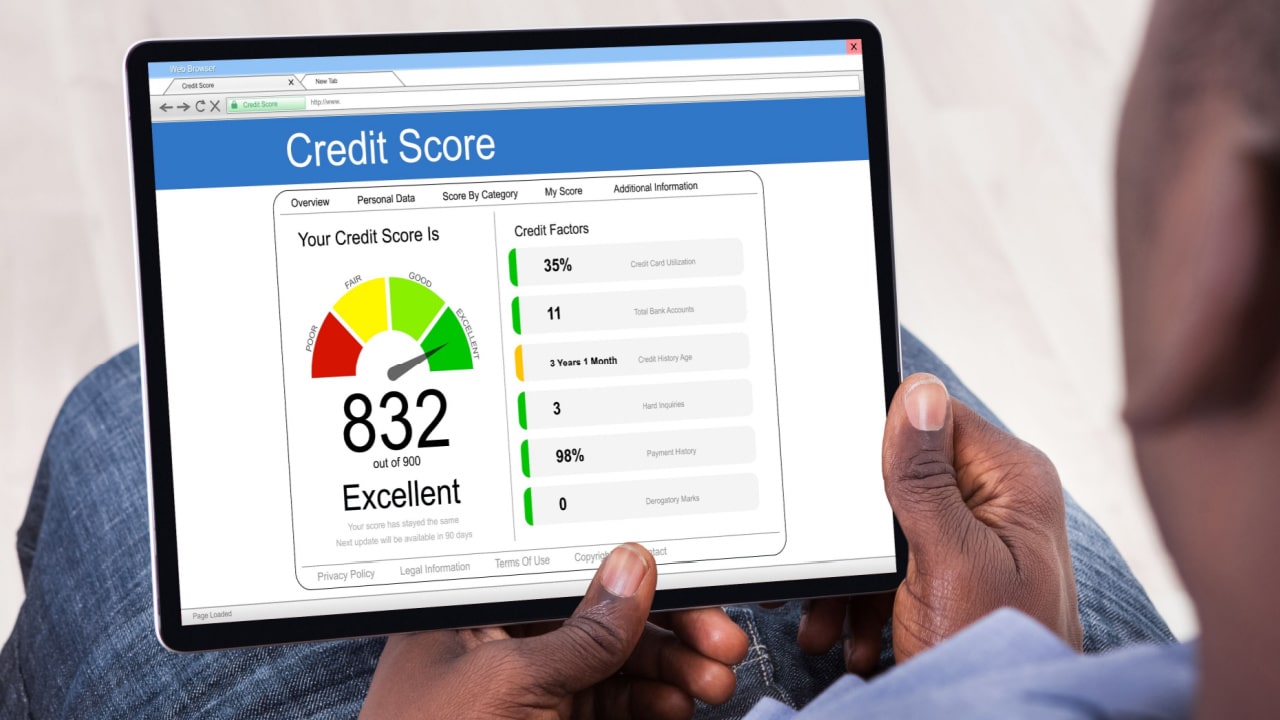As we age, different aspects of life become increasingly important. We grow up, and we realize the benefits of a stable future. But how do we get there? For a lot of us, this can be a challenging endeavor. Fortunately, we are not the only ones trying to accomplish this feat, and there are support systems to help us all out.
1. Pay off Credit Card Debt

That credit card debt you accumulated on dumb purchases in your 20s can follow you like a storm cloud over your head. It could take years of minimum payments to get those balances under control. If you cannot keep up, look into a personal loan to help get those high rates under control. It’s better to start now than later.
2. Fix Your Credit

This goes hand in hand with managing your credit card. Your credit score can affect your future car and home purchase, and it could even affect your career. Yes, some employers use credit scores to vet their future employees. Take this score seriously; it can be easy to maintain but much harder to fix if it drops severely.
3. Create an Estate Plan

This sounds a little morbid when you are in your youthful 30s, but many financially successful people are known to plan ahead. Get your living will and trust in order so your family can have a plan in case the worst happens. Better to have it when you don’t need it than to need it and not have it. Plus, you can modify it as you grow and things change over time.
4. Track your Net Worth

Even if your net worth is minimal, tracking it can set goals and a timeline for achieving financial freedom. There are many net worth tracking apps available, such as mint.com. Keeping track of this figure will let you see the fluctuations in your investments. Financial experts agree to keep pumping money into your net worth to keep your financial goals on target. The stock market may change, but your net worth should grow steadily.
5. Keep an Emergency Fund

This is your backup plan. Some say you should keep up to a year’s worth of money saved up for that “just in case” moment. You need to be prepared for a potential medical emergency, car repair, or temporary lapse in employment. Don’t rely on credit cards to survive. Put a percentage of your paycheck away every month if something like that happens. Better to be prepared for the worst.
6. Find Good Health Insurance

Guess what? One day, you wake up and are not in your twenties anymore. You get hurt more easily. If you don’t believe me, try playing basketball with some teenagers and tell me how you feel. The truth is, health problems will come. Don’t go into debt over a health scare that is easily handled with health insurance. Trust me, these bills can only be pricey with adequate coverage. We just went over emergency funds; this will help save those funds.
7. Ditch the Fancy Car

You are not a young kid anymore. Your car does not define you. It’s okay to splurge on a nice ride if you can afford it, but overspending on a luxury car to look cool is just a waste of money. Buy a Kia or a Hyundai. They look like and drive like luxury cars for a fraction of the price. Plus they offer a great warranty.
8. Ditch the Car

If you live in a walkable city and don’t NEED a car, experts say give it up for a year or two. Pocket that car and insurance payments and use that money for other needs. Plus, you will love the fresh air and exercise. Grab one of those electric scooters if you are in a hurry and don’t feel like showing up sweaty from running.
9. Learn to Cook

Stop ordering takeout every night because you don’t know how to cook a chicken breast. Takeout can be extremely expensive, and cooking home-cooked meals is affordable and creates a rewarding and essential life skill.
10. Avoid Frivolous Spending

What is frivolous spending, you ask? Do you really need a new giant TV when you live in a studio apartment? Are those new boots you’ll wear twice this winter worth the hefty price tag? Go bargain hunting and leave those unnecessary items on the shelf.
11. Get a Cheap Hobby

There are some expensive hobbies out there. Find something you like to do but won’t break the bank. Get into bike riding or disc golf. Something to keep you occupied but will only make you spend a little money on. All you golfers out there know what I am talking about.
12. Exercise Daily

It’s not a financial tip, but the benefits of a healthy lifestyle will soon bleed into your successful career. Exercise releases chemicals in your brain that help you sleep and function better throughout the day. This may help you out in your next business meetings. Also, a healthy lifestyle will deter medical bills in the long run.
13. Personal Development

Working on yourself might be the best investment you can make. Experts agree that listening to self-help podcasts and audiobooks has helped them grow mentally and in their careers. Find a niche audiobook in the job you have chosen to grow while not at work. They can also be great resources for any money-managing philosophies as well.
14. Take Some Risks

This can be a beneficial piece of advice in your career or your investments. Take a risk in your career by trying to head up a new division or a new responsibility. Take a risk with an investment that could net you a hefty return. Remember to seek the advice of a financial planner so the risk isn’t considered foolish, however. A little chance could change your portfolio and allow you to keep taking risks as your wealth grows.
15. Start a Side Hustle

A lot of younger professionals have a side hustle these days. These could provide some extra income or be a way of keeping them busy. If I’m not busy, I get bored, and being bored makes me spend money. My side hustle is bartending on the weekends. It’s a fun side job that keeps me social and pads my bank account. It could be wise to use this money to pay off debt or save for a big purchase.
16. Marry Someone With a Similar Mindset

Alright, we are getting a little personal here, but finding a partner who believes in the same financial goals is important. Look into your dating partner’s goals. Do they align with yours? Do they follow the same steps to avoid debt and save for the future? These are important traits in a partner for anyone reading this article. Have the hard conversations now because they can be problematic if left unattended.
17. Keep Those Conversations Fluid

If you do get married, you and your partner must have a plan and a mutual goal. Keep financial talks weekly to avoid getting out of hand with your bills. Money talk is not always fun, but it can keep your relationship strong and on track.
18. Look at Retirement Plans

I have so many friends who have ignored their companies’ retirement plans because they were young and didn’t think about that day. Some companies will match a portion of your 401k. Yes, they match it. That is free money, and you would be a crazy person not to take advantage of that offer. Look at your 401k options despite your age!
19. Max out your Roth IRA

You might have to pay taxes on a Roth IRA, but you can also use your money to put a down payment on your house. You might lose the tax-free money at retirement, but in the meantime, you have property that will most likely appreciate in value. What a win!
20. Roll over your 401k

If you leave a job, you have two options. Leave your 401k at the company and risk forgetting about it, or liquify it and face fees and penalties. Why would you do that? Roll it over into your new company’s 401k and keep watching the balance climb! You’ll be on the beach retired in no time.
21. Ditch the Bars

Stop spending money on overpriced drinks in a loud and crowded bar. Consider barbeques or dinner parties with friends. Bring your own beverages and enjoy conversations with friends when you don’t have to talk over the DJ. If this sounds better than a night on the town, congrats, you are officially old. Which is more than okay.
22. Halt Lifestyle Upgrades

As we grow in our careers, we will get pay raises. How fun are they? Experts advise us not to go out and buy something shiny and new every time we get a raise. We don’t need to upgrade our living room every year. It’s fine. Invest your raise and keep the money growing.
23. Focus on Yourself, Not Others

Everyone is on their own timeline in life. I learned the hard way not to judge myself on where my peers are. Focus on what will make you more successful. Judging others will surely bring you down, and second guess yourself.
24. Be Patient

It is okay to stop and look around every once in a while. Admire your progress and your hard work. Nothing is going to come overnight, so relax and enjoy life. Stay focused on your goals, keep your head down, and enjoy life. Have fun with your partner and your kids. Splurge every once in a while. After all, you deserve it.
The post Financially Fit by 30: 24 Money Moves You Should Make first appeared on Wealthy Living.
Featured Image Credit: Shutterstock / Gorodenkoff.
The content of this article is for informational purposes only and does not constitute or replace professional financial advice.





